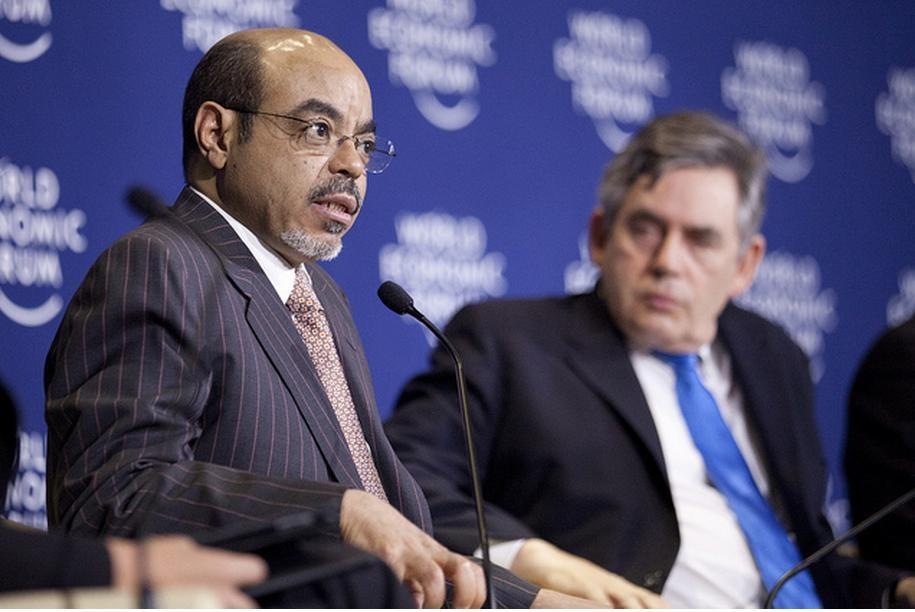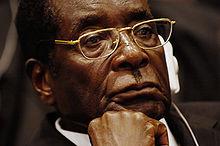Mamdani Misrepresents the Armed Movements
Prof. Mamdani accuses the Save Darfur campaign of being deliberately ignorant. But I read his book realising that he didn’t do his homework properly either.
For example, Prof. Mamdani shortens the name of the Chairman of the Sudan Liberation Movement/Army to ‘Abdel al-Nur’ (p. 250 et seq.) This proves that he is not as familiar with the Darfurian struggle as he should be. And how did “˜Abdel al-Nur’ bring together students “˜at his Eritrean base’ to analyze Daud Bolad’s errors to plan his insurgency? As is well known Abd al-Wahid didn’t make it to Eritrea until well after the rebellion began. And what are we to make this claim: “˜a major shift in the southern movement, from a separatist to a nationalist orientation’? (p. 269) Prof. Mamdani writes that this happened in 2002-03 at the instigation of John Garang. It might be that “˜southern’ is an editing error, and he meant “˜Darfuri'””but Abd al-Wahid and his comrades were never, ever separatist. Mamdani continues: “˜The irony is that the name change has not been accompanied by an equally decisive change in orientation, which is why one can still read rebel literature that speaks of “native” or “indigenous” tribes of Darfur.’ This claim is not footnoted and I wonder of Prof. Mamdani has actually read the SLM and JEM manifestos or spoken to their leaders?

The people of Darfur were betrayed by their self-styled liberators who prefer the life of hotel guerrillas. The young comrades of the SLM/A were so hypnotized by the promise of foreign salvation that they forgot about mobilizing their own people. JEM believed they could ride the wave of Save Darfur up to Khartoum and their own record of brutality would be conveniently ignored. I had hoped that a radical scholar with a distinguished track record of supporting revolutionary causes would have shown understanding of the predicament of Darfur’s revolutionaries, or empathy with the people of Darfur who suffered so much at the hands of the Inqaz and the liberators alike. But no, Saviors and Survivors is another long-distance academic treatise. Darfur doesn’t fit into Prof. Mamdani’s nice intellectual theories.
Prof. Mamdani is so determined to expose the mistakes of the Save Darfur movement that he ignores the crimes of the Inqaz regime. He credits the coupists with resolving the 1987-89 Darfur war in one week flat. Wrong on two counts! It was the Darfuri elders and Governor Tijani Sese Ateem who did 99% of the work. Al-Bashir was smart enough to include a Darfuri general in the Revolutionary Command Council. But who ever heard of Gen. al-Tahir after that? And they then failed to implement the al-Fashir peace agreement so that fighting continued into 1990. Mamdani then glosses over the repression they inflicted after Daud Bolad’s invasion (and mentions “˜Idel Fursan’ without a trace of irony about how the town earned its name.) It’s hard to read his book without concluding that he believes that the Inqaz regime is innocent.
Mamdani blames the native administration for Darfur’s crisis but then blames the “˜breakdown of the system of reconciliation’ for the crisis as well, not pointing out that the system of reconciliation was, actually, that self-same native administration. He depicts the NIF reforms as a technical-administrative response to land conflicts (p. 247) and then writes (p. 253), “˜When faced with the insurgency, the Islamist government’s initial response was to encourage reconciliation.’ No and No! And on the next page we have, “˜Slowly but surely, the counterinsurgency moved to an overwhelmingly military response.’ Not a bit. It was scaled up as rapidly as the regime could manage: al-Fashir attacked in April, Janjawid-army joint offensives by June.
Mamdani is on target when he says that Ocampo cannot reduce everything that happened in Darfur to President al-Bashir’s design. But all those simple ordinary people weren’t just killed by the forces of history or the mistaken racial theories of some long-dead British colonialist. Mamdani’s lack of sensitivity to the suffering of the Darfuri people and his readiness to give the benefit of the doubt to their oppressors does not impress me one bit.







Dear Abd al-Wahab Abdalla
I think Professor Mamdani is right when he claims that ” One can still read rebel literature that speaks of ”native” or ”indigenous” tribes of Darfure”.
When it comes to judge the realities on the ground the deeds speak louder than the movements’ manifestos or the statements of thier leaders. The tribal dimension is deeply rooted in the actual structures of the Darfuri movements to a degree that it is a deteminant factor in identifying thier stances. For example, the Abd al-Wahid SLM can be easily identified as the movement that defend the case of the Fur tribe considering its leadeship structure, its relations with other Darfuri movements and its field of military operations. While, on the other hand, the JEM is dominated by the Zaghawa tribe from its lesdership who are Zaghawi brothers and relatives to its very close ties with the ruling regime in Chad led by Idris Debbi who is a Zaghawi himself. The inclusion of other tribes representatives has no effective role in detemining the decisive policies and stances of these movements and this may explain the continuos fragmentation they suffer from. Not only the leadership structure is based on tribal cosiderations but even the way they settle thier differences is also tribal which sometimes accompanied by very acute polarizations that end in fighting.
abd al wahab your clearly very biased towards the rebel groups and your making an extrmely poor case against mamdani,its ludicrouse that you are willing to base your argument against mamdani on the fact that he didnt spell arebel leaders name right.
Dear Abdallah,
The leaders of the armed movements have failed. Of this fact there is no doubting. They have become tribalistic and corrupt. Our people are sticking by them only because nobody has arisen to lead Darfur and to make the ideals of liberation, justice and equality into something bigger than a slogan. Prof. Mamdani should have analyzed this failure correctly.
Dear Mohanad,
Your argument is as ludicrous as your spelling. We will not make progress until we can analyze the contradictions of the revolutionary movements in Sudan including the Islamists and the secularists alike. Academics have a duty to get their facts straight and it is a shame that Prof. Mamdani has missed a golden opportunity to lay bare the political bankruptcy of the Inqaz and its project also the bankruptcy of its opponents. This is where the root of our national predicament lies.
yours sincerely
Abd al-Wahab
Am sure mamdani is grateful for your willingness to spell check his book but clearly your missing the point.trying to discredit mamdanis argument on the basis of a spelling mistake and then intern trying to discredit my point on the same basis only goes to show the weakness of your own argument,that you need to resort to spell checking to refute an argument.